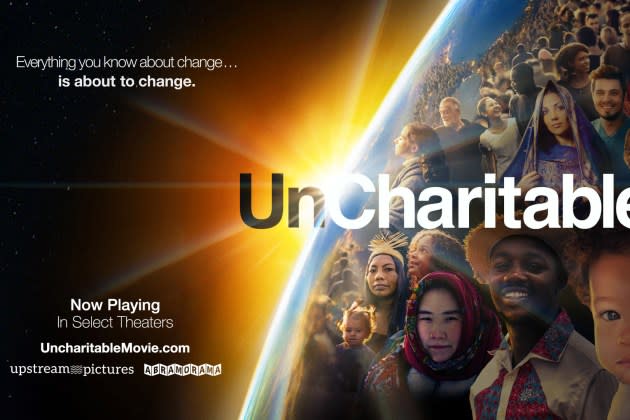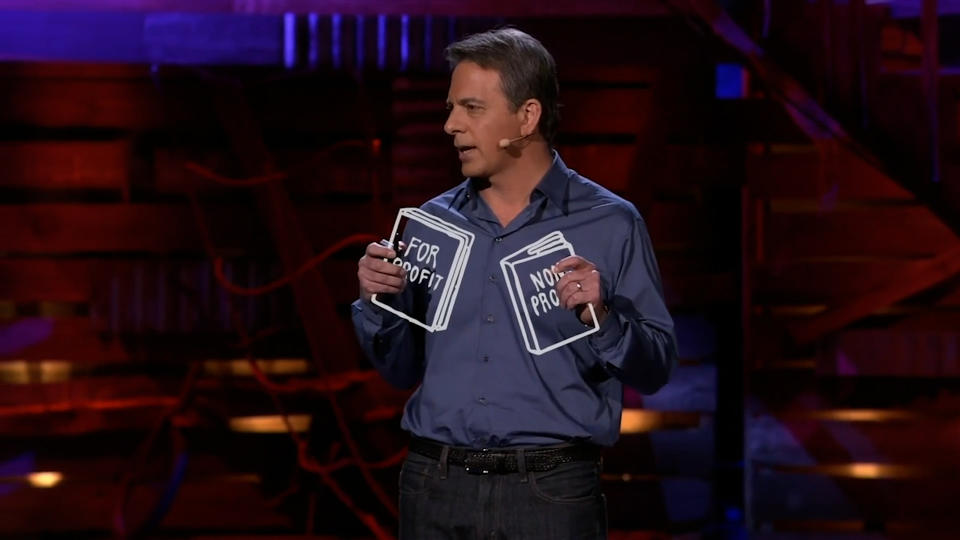Oscar-Contending Documentary ‘UnCharitable’ Says When It Comes To What We Expect Of Nonprofits, We’ve Got It All Wrong

December is the most popular month for charitable giving by Americans – accounting for about a third of all donations made per year. Call it the spirit of the holidays, repeated viewings of A Christmas Carol, or a rush to get in tax-deductible gifts before the calendar year runs out.
That makes this a particularly timely moment to encounter one of this year’s Oscar-contending documentaries, UnCharitable, directed by Stephen Gyllenhaal. It argues we are applying misguided standards to charities – monitoring their overhead expenses like hawks and shaming any nonprofits that dare to spend money on staff salaries or fundraising.
More from Deadline
“The movie is demanding that we look at it in a new way, really,” Gyllenhaal said in a recent Q&A (you can watch the conversation below). Under the existing paradigm, charitable nonprofits have learned to operate bare bones style, at the expense of solving the social problems they ostensibly are meant to address.
“UnCharitable demands that charities be freed from the traditional sackcloth-and-ashes constraints,” states the film’s logline,” so that they can truly change the world.”
Meredith Blake, who produced the film with Stephen Gyllenhaal and Kathleen Man Gyllenhaal, formerly served as EVP of corporate and community affairs at Participant, the mission-oriented media company. Earlier in her career, she founded and ran a nonprofit, where she confronted the counterproductive expectations applied to charitable organizations.
“I went into it just feeling like all things are possible and very quickly saw how you are handcuffed by being in a system that rewards really sort of small mindsets in a lot of ways,” she said during the Q&A. “How lean can we be? How restrictive can we be? Can we actually even celebrate the fact that we’re trying to tackle huge intractable issues with lean structures, lean financing, lean thinking? And so you’re monitored on all of that and you’re reporting on all of that.”
She added, “I ultimately left the nonprofit sector because of some of the things that you see in this film because I felt like I was sort of handcuffed from doing the thinking that I wanted to do.”
The film is not suggesting charities should spend money frivolously. But it is trying to reframe how we look at the best ways to tackle social ills through philanthropy. For instance, what if we paid leaders of charities something approaching what they would earn in the private sector, thereby attracting top talent – talent that can really move the needle? What if we accepted the concept that to raise money you have to spend money – on advertising, marketing, etc.? (Just like for-profit corporations do; it’s unthinkable that a McDonald’s or a Coke would halt advertising to “save money” – those companies’ sales would plummet).
One of the key points made by UnCharitable is that in the fight to solve societal problems, we’re leaving money on the table. If innovative marketing campaigns (which cost money) were deployed to encourage Americans to give more – guess what? – they would.
Gyllenhaal insisted, “There are trillions of dollars sitting on the sidelines.” Said Blake, “There is a lot of money available. And so if you watch this film and you come out of this and think, ‘We’ve been doing it all wrong,’ well, the flip side of that is, we have enough money to do it right, and now that we know better, can we actually make those changes in a way that is super hopeful? Because we see it.”
She added, “If we get out of this archaic way of thinking and embrace a new frame and that drives the capital in a new and different way, you suddenly can see some of these really debilitating issues that have plagued and are confronting the planet — in a way that feels so hopeless — as a hopeful new opportunity. That’s where I think the power of this is.”

The film is inspired by an influential TED talk given by Dan Pallotta, an entrepreneur who raised millions of dollars for nonprofits dedicated to benefitting breast cancer research and the fight against AIDS, among other charitable initiatives. In the film, he says his nonprofit operation was torpedoed by media coverage that wagged a finger about overhead costs, while ignoring the larger picture of the success he was having at actually benefitting charities.
Pallotta’s story — and that of several others in the film who were pilloried for their nonprofit work — are meant to lend a human touch to UnCharitable.
“I tried with the film to make it not just a polemic,” Gyllenhaal explained, “but that it’s also an emotional experience. You see how this ethos [of penny-pinching and shaming] has devastated organizations and people who really tried to do the right thing and then got destroyed because they spent money, they took risks, and all the things that do make an organization succeed… The three major stories in this movie are astonishing. I mean, Jason Russell’s story [about the architect of the viral ‘Kony 2012’ campaign] is a dream of a drama, and all of them are these amazing stories.”
Watch the conversation in the video here:
Best of Deadline
2023-24 Awards Season Calendar - Dates For Oscars, Emmys, Grammys, Tonys, Guilds & More
New On Prime Video For March 2022: Daily Listings For Streaming TV, Movies & More
Sign up for Deadline's Newsletter. For the latest news, follow us on Facebook, Twitter, and Instagram.

